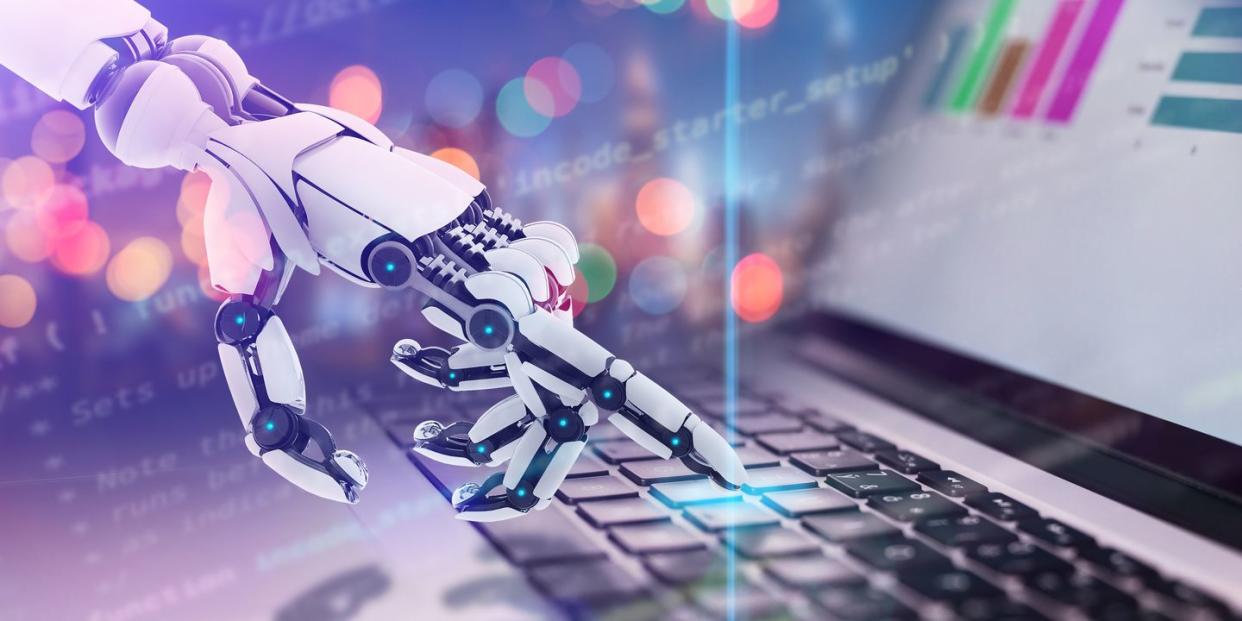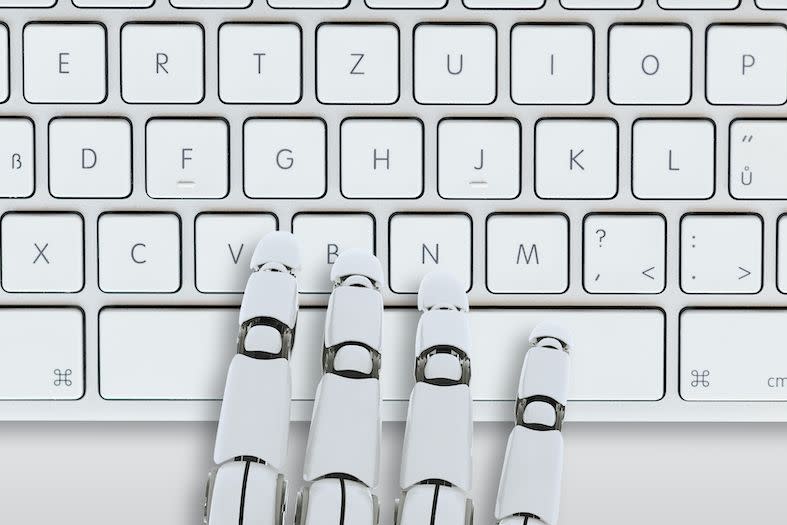What is Auto-GPT? The new AI software that has people *freaking* out

Welcome to 2023, the year that AI publicly stepped it up one hell of a notch – thanks to the rising popularity of ChatGPT, the technology that creates deepfakes becoming ever easier to access and concerns around voice cloning soaring. Next on the list of things we should probably-maybe panic about? Auto-GPT, ChatGPT's far more capable sibling... if early reports are to be believed.
So, what on earth is Auto-GPT? Well, it in its rawest form it's an open-source application that some are worried could put the likes of social media managers, SEO experts and those who work in customer service positions out of a job. Gulp. The GPT stands for Generative Pre-trained Transformer, which is a neural network designed to function like the human brain – as in, it can take on board information, learn from it and use that knowledge to improve on any task its assigned… in the most independent way yet.
Auto-GPT (which is a GPT-4 model), however, seems to go a step further than chatbots, by promising to be able to do market research all by itself, write snappy headlines and generate entire blog posts without much prompting, so, err, double gulp for any other journalists in the room. It's said to be self-sufficient, meaning it's able to carry out tasks, such as scheduling an Instagram post and writing a relevant caption to accompany it, without you needing to manually tell it to, and can respond to customer queries or complaints in any language required on an external site.
Essentially, the idea is that it can create long-term business plans and models, then execute them pretty much solo, as opposed to being told what to do by a human each step of the way. Once it's completed a task, Auto-GPT can then think of another relevant one to go away and tick off its list too.
This comes in contrast to ChatGPT, which can carry out tasks after being given specific instructions and refinements/critiques from humans, within its contained webpage – it can't (yet) go off and build you a spreadsheet elsewhere, or log on to Twitter and publish a viral quip to put your business on the map.

But what does this latest addition to the 'robots are taking over!' conversation suggest about the future of the human race, and in particular, the way we work? Honestly, at this point it's too soon to say and there are mixed thoughts on either side as to whether we've taken AI too far, too soon. Some of big tech's biggest names, however, such as Elon Musk and Jaan Tallinn (one of the brains behind Skype), are cautioning that we need to hit the brakes on releasing AI developments, and take a moment to really consider its impact on the way we live, rather than continuing the entrepreneurial race to rush a cool new product out the door... without really knowing how to control it, or what it might do next.
A letter airing said concerns, and asking for the AI race to pause for six months, was also recently signed by thousands, including researchers from DeepMind (a leading AI company), Musk, Steve Wozniak (co-founder of Apple) and Evan Sharp (co-founder of Pinterest).
"Contemporary AI systems are now becoming human-competitive at general tasks, and we must ask ourselves: Should we let machines flood our information channels with propaganda and untruth?" the letter questions. "Should we automate away all the jobs, including the fulfilling ones? Should we develop non-human minds that might eventually outnumber, outsmart, obsolete and replace us? [...] Powerful AI systems should be developed only once we are confident that their effects will be positive and their risks will be manageable."
The letter cautions against developments beyond GPT-4 and suggests all "AI labs and independent experts should use this [proposed 6 month] pause to jointly develop and implement a set of shared safety protocols for advanced AI design and development that are rigorously audited and overseen by independent outside experts".
Speaking during a recent interview with the BBC, Tallinn added, "Once we have AIs that we a) cannot stop and b) are smart enough to do things like geo-engineering, build their own structures, build their own AIs... then what's going to happen to their environment, the environment that we critically need for our survival? It's up in the air."
He also shared that his "big worry" was the idea that technology is racing ahead without society having time to adapt and control it. The Italian government appear to agree, having recently banned ChatGPT.
On the flip side, it's reported that here in the UK, MPs are holding off on introducing super strict AI regulation, for fear of "strangling innovation" and many don't appear to be overly concerned about the worries raised in the open letter. One unnamed MP even told the BBC's Laura Kuenssberg, "The tech bros have all watched a bit too much Terminator. How does this technology go from a computer program to removing oxygen from the atmosphere?" and added that they believe harsher laws won't be required for at least another few years.
For clarity: this article was written by a real human (unless you didn't like it... in which case it was definitely, 100% penned by Auto-GPT).
Follow Jennifer on Instagram and Twitter
You Might Also Like

